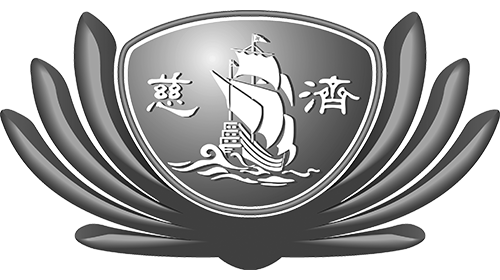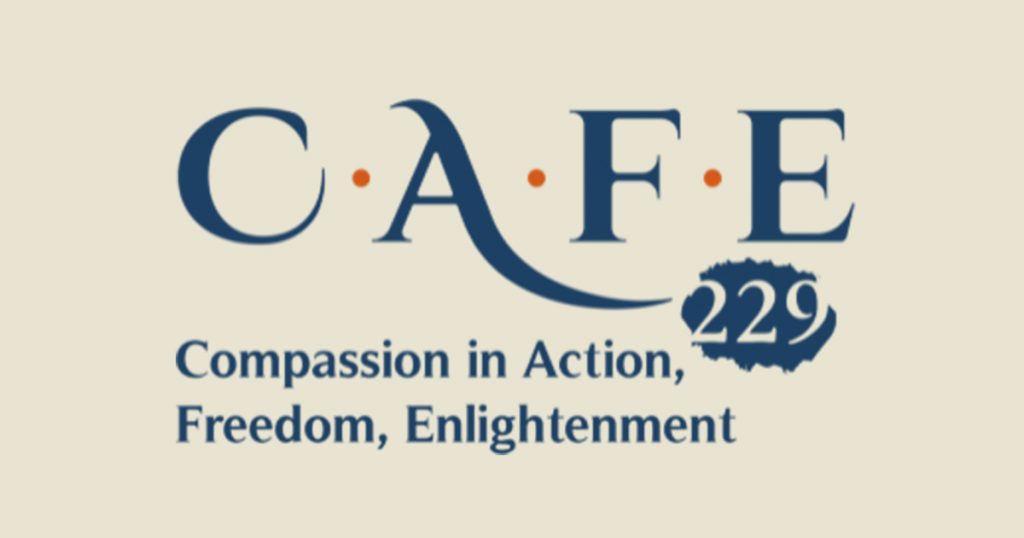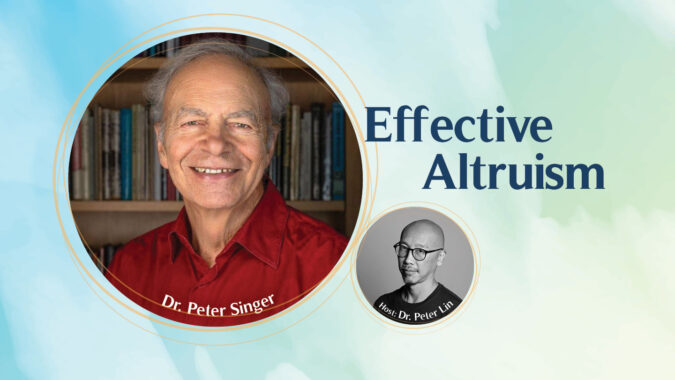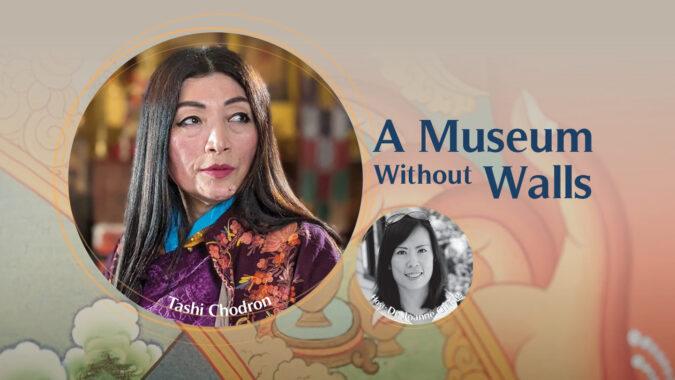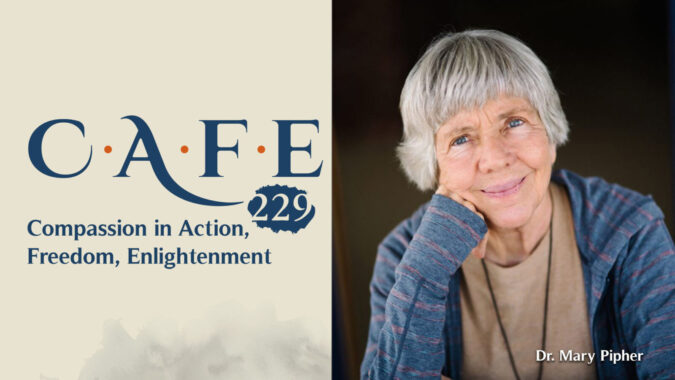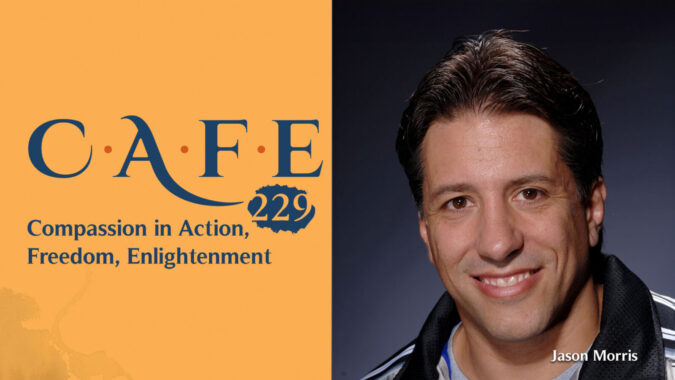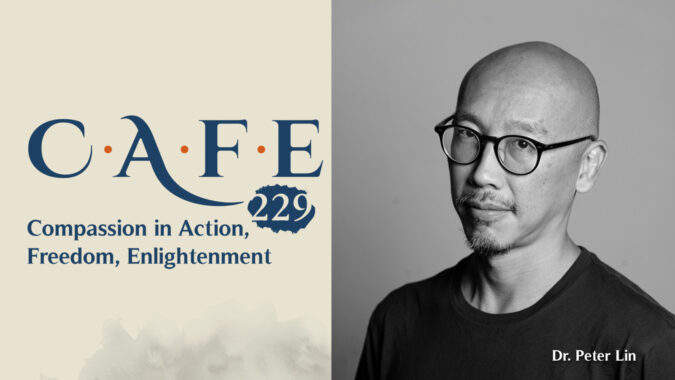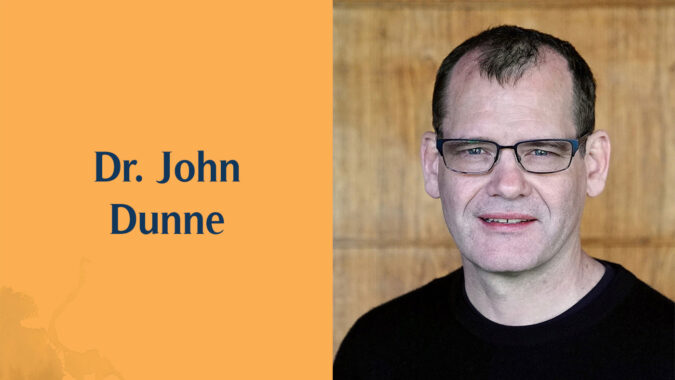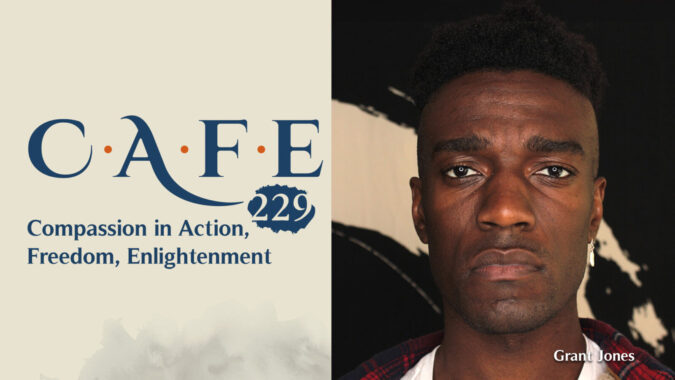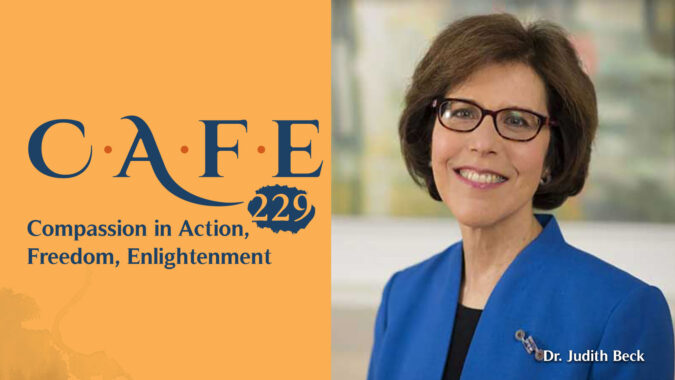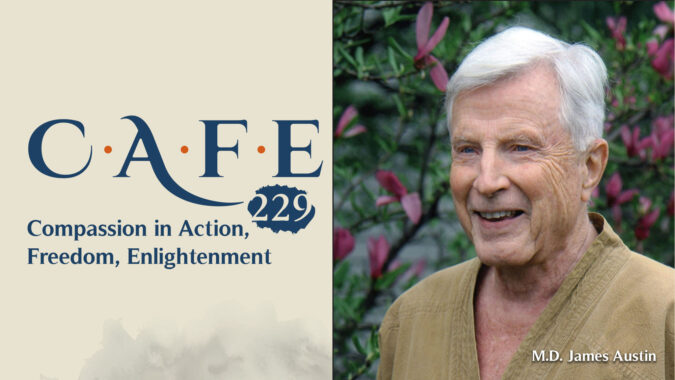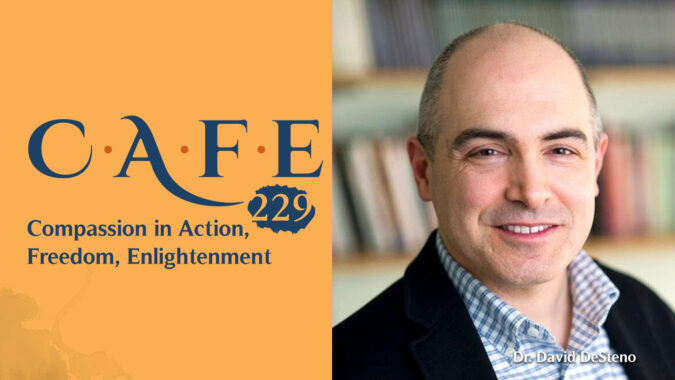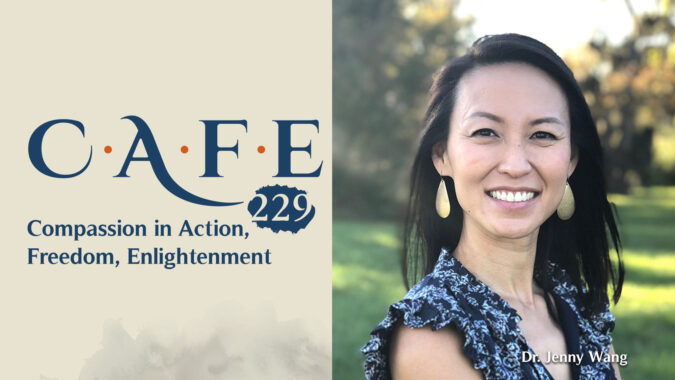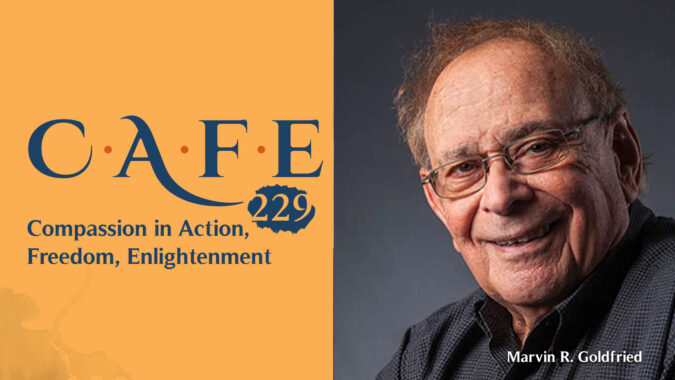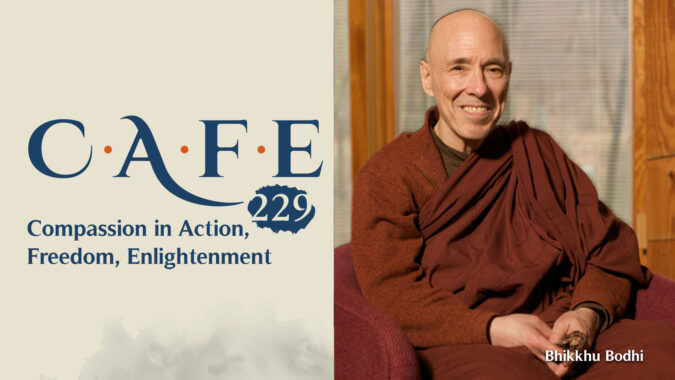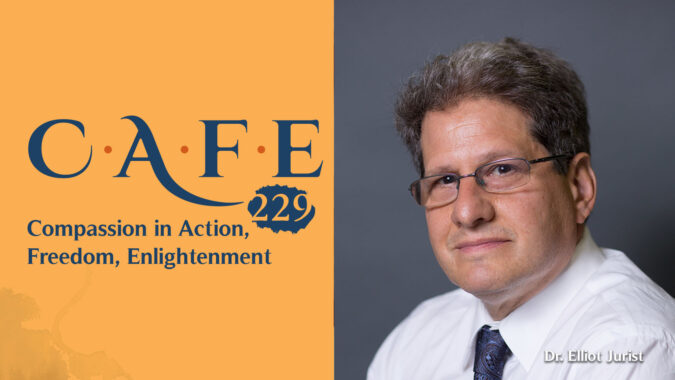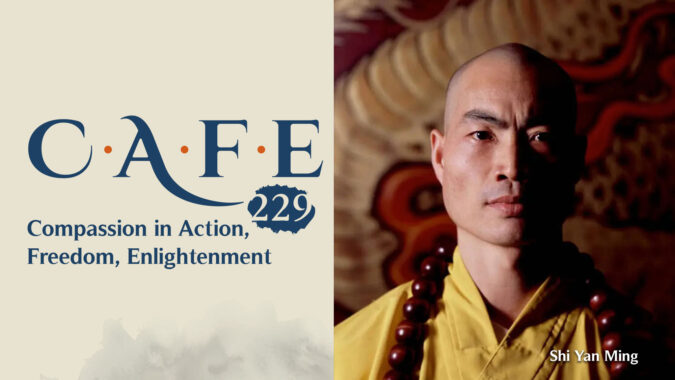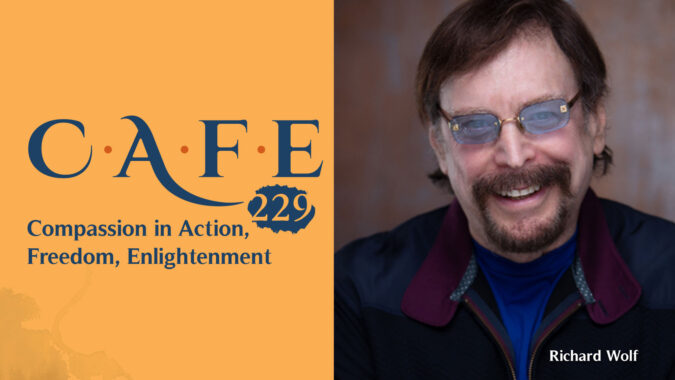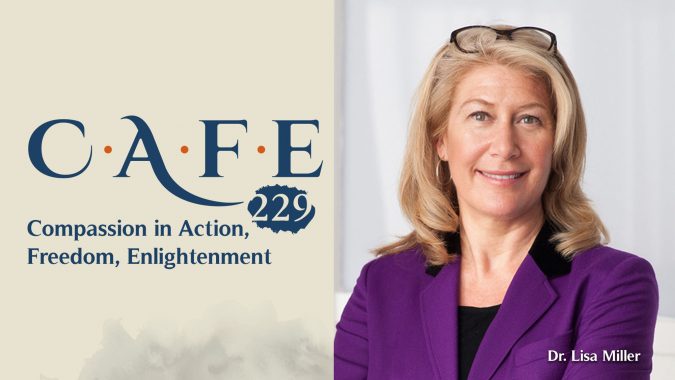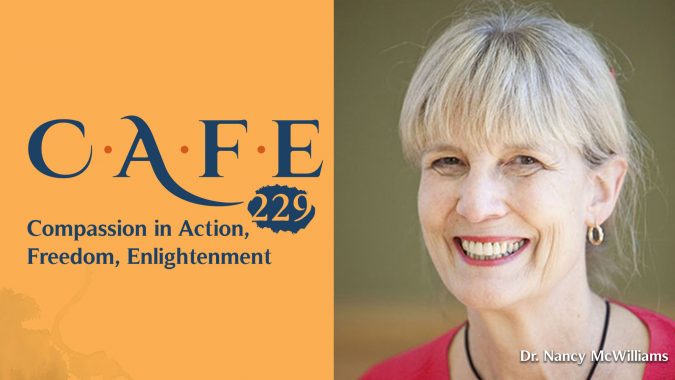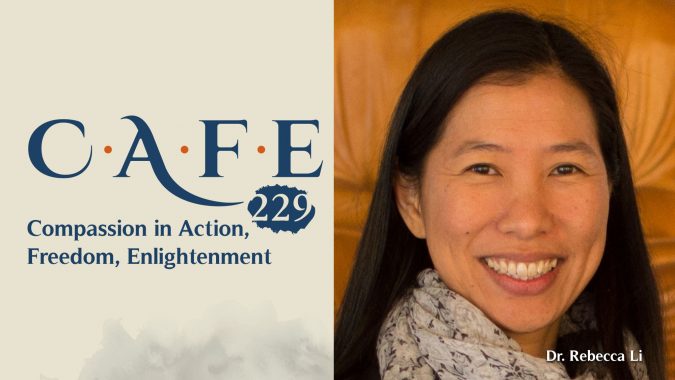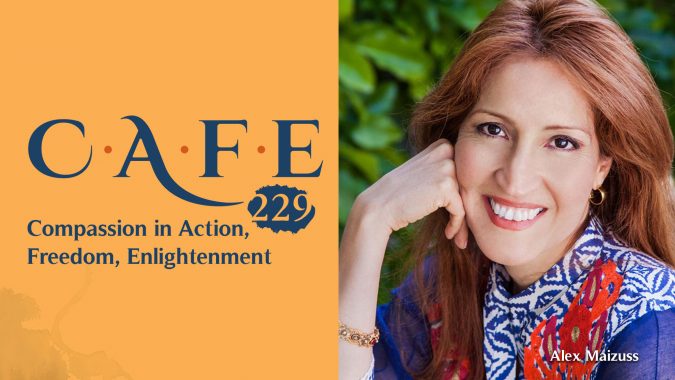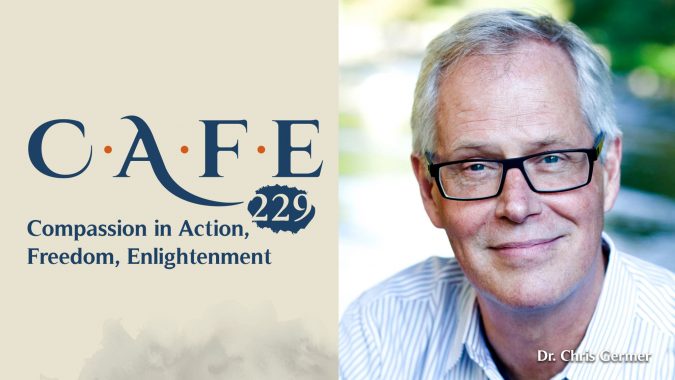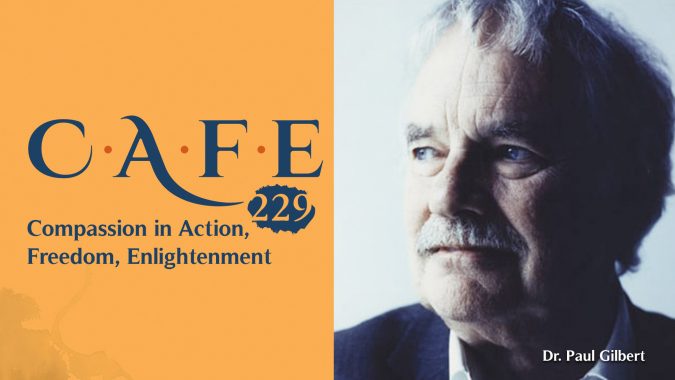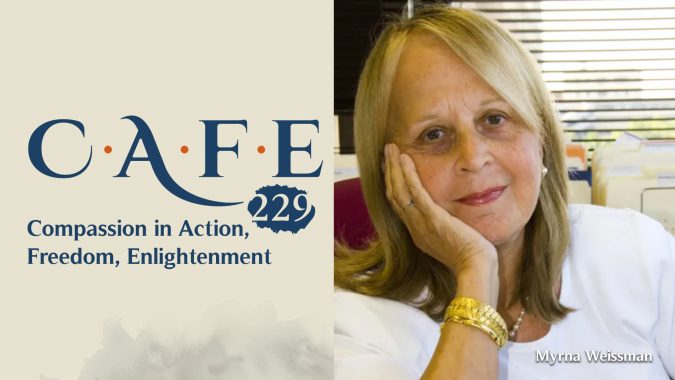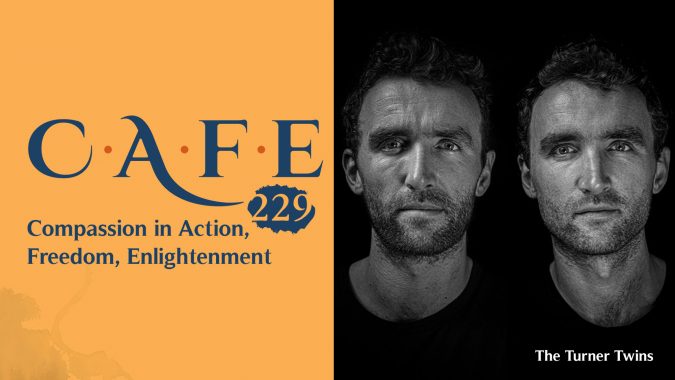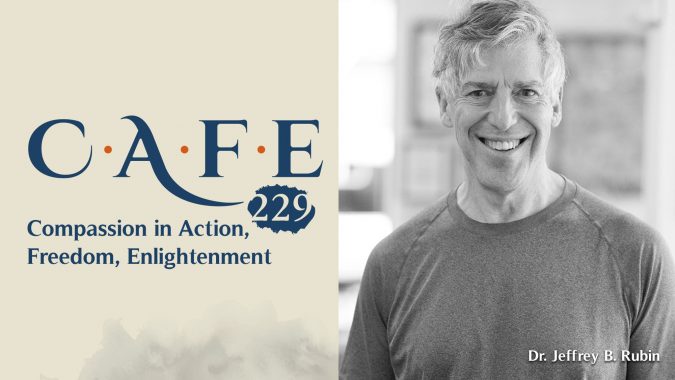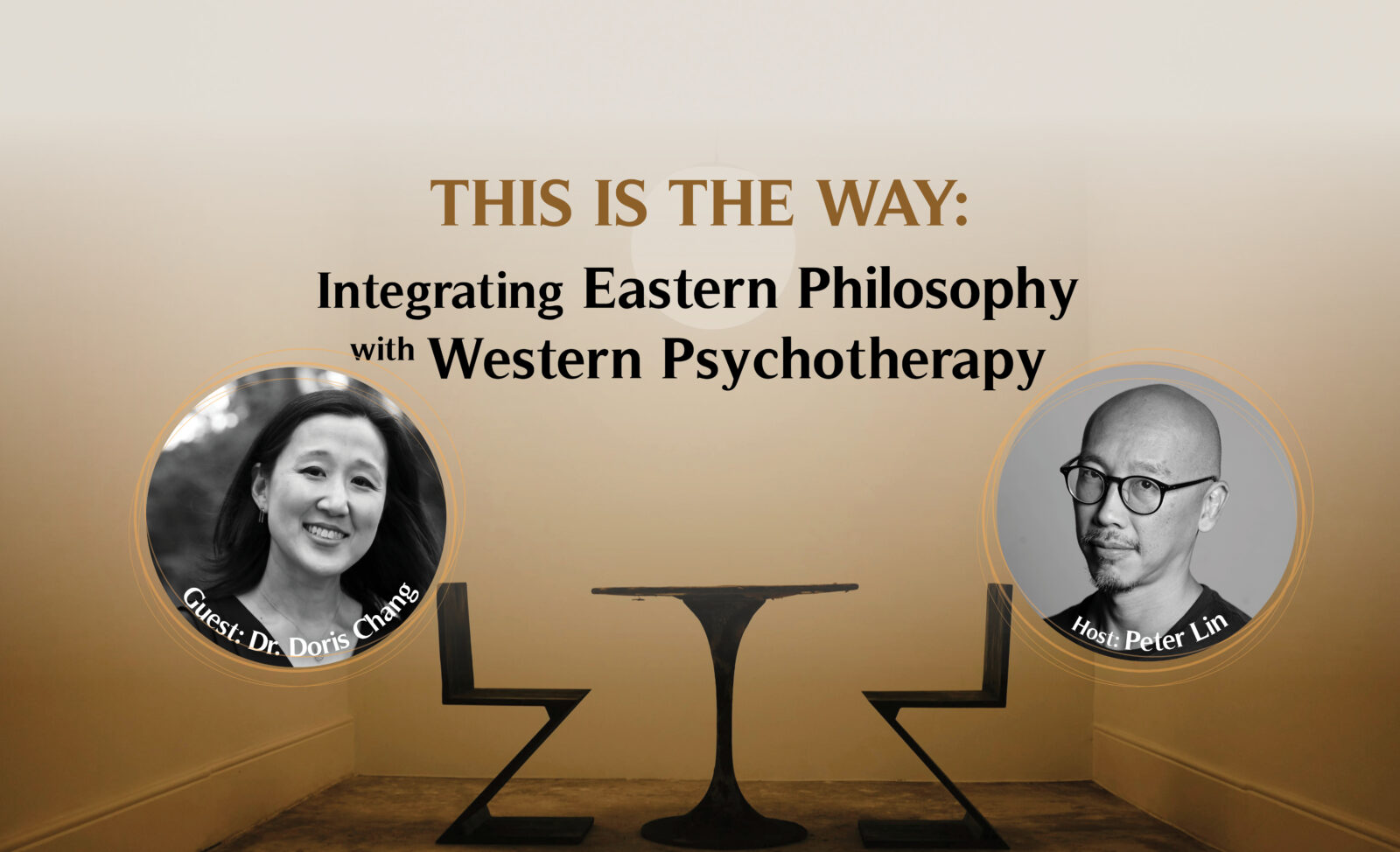
Webseries C.A.F.E. 229 debut’s its latest episode with an interview of special guest Dr. Doris Chang as she covers cultural competence in western psychotherapy through incorporating eastern philosophy.
Written by Andrew Larracuente
In the heart of New York City at Tzu Chi Center on the afternoon of April 19th, compassion in action made a return with web series C.A.F.E. 229’s latest episode by hosting Dr. Doris Chang, a clinical psychologist, NYU professor, and mental health expert on communities of color. Proper mental health is a common concern all around the world, and Dr. Chang shared her professional insight in merging eastern philosophy and western psychotherapy to help when cultural stigmas act as a barrier to finding beneficial therapy. Together with C.A.F.E. 229 host Peter Lin, they both opened the important discussion in the company of the web series’ first ever live audience since its inception in 2020.
Cultural competence plays a key role in psychotherapy accessibility. Having good mental health support should be made available to everybody, but therapy can be dismissed in certain cultures as an external means of self-improvement. As a teacher for the past 20 years for the psychology diversity course that is required for licensure, Dr. Doris Chang has developed a broad sense of how to strengthen cultural competence in psychology. A full house at Tzu Chi Center awaited in eagerness to learn as much as possible from her professional advice once Peter Lin began his conversation with her.
What Brought Dr. Doris Chang to Cultural Competence Psychology?
Kicking right off with an expression of excitement from his initial meeting of Dr. Doris Chang years prior, Peter Lin asked about her origins in the field of clinical psychology. As an Asian American born in Fort Worth, Texas, finding fellow Asian American community members was scarce as Dr. Chang grew up. Only when she began studying psychology in college at the University of Texas did she gain more prominent exposure to Asian Americans and really start exploring what identity meant to her, becoming guided by a desire to center culture and destiny in a career path. Spending classes considering how the topic of psychology would be digested by her parents, she became very interested in how culture shapes our lived experiences, how it might shape psychological health and well-being, and psychotherapy regarding clients of color.
Such interests Dr. Doris Chang categorized as very personal, stemming from an attempted understanding of her experiences as a second-generation Asian American. However, there wasn’t much luck for her in finding what she needed for her curiosities in the standard curriculum, as the basis of most texts then was not of partial to Asian sensibilities. This carried on until a breakthrough was made when pursuing her PhD at UCLA.
Dr. Doris Chang proceeded to elaborate on how, during that time, a federal grant had been secured by Dr. Stanley Sue to create the National Research Center on Asian American Mental Health. This brought a lot of excitement to the field of Asian American mental health, and the surroundings around Dr. Chang were incredible, as she found lots of people from a similar cultural background. She had found the dialogue on Asian American mental health opening, but when she was back home, her mother seemed shocked at the notion of Asian people having psychological problems. This is a common occurrence in several cultures of color when considering the value of psychological therapy, but through repeated conversations on the topic across the years, Dr. Doris Chang has reached a point with her mother where it is more on her radar as a benefit. Yet, this was a prime example of a challenge Dr. Chang would regularly face in her career path as a mental health professional.
Cultural Competence and Critical Consciousness at NYU
Fast forward to the present day. Host Peter Lin, also a fellow psychology professor teaching at St. Joseph’s University, reaffirmed the difficulties of conveying psychological theories to those who aren’t from the traditional culture and inquired with Dr. Doris Chang about the cultural competence and critical consciousness of her course at NYU (New York University). After asking for a brief survey from the audience about their interest in the mental health field as a profession, she spoke about a necessary course in psychology centered on diversity, which is required for licensure. Dr. Chang has been teaching this class for the last 20 years, and she applauded how it is a requirement. “I think it’s great that it’s required. Clinicians now actually have to grapple with what does it mean to think about how race, ethnicity, culture, gender, sexual orientation, and religious belief—all of these things might shape how our patients see the world and might create some cultural distance in our ability to necessarily understand where they’re coming from.”
In Doris’ class, she tries to focus on the reasons why it is difficult to connect across cultures. Race plays a large part in the U.S. context, which often leads to racialized discussions between her and her students. For an Asian American, questions can lean towards: What does it mean to be considered Asian? How are they stereotyped? What kind of race experiences do they have worldwide? How do their cultural beliefs and values affect how they move through the world, make sense of mental health, and what they, themselves, value in terms of what it means to live a good life?
There’s an emphasis from Dr. Chang on helping her students understand themselves as cultural beings. Her goal through this method is to bring their awareness to their own assumptions and beliefs grounded in their personal experiences to temper their understanding enough to not go into a relationship assuming the other person’s beliefs are the same. Secondly, she advises honesty to oneself regarding the stereotypes and beliefs they hold about others. There’s no shame in not connecting with someone, but she believes acknowledgement is the proper way to address such disconnects.
Contemplative practices are also of great use to Dr. Doris Chang in her classroom. To get C.A.F.E. 229’s live audience involved and improve their understanding, she asked them to place themselves in two scenarios. The first was being in a room with a therapist from a familiar background, and the second was being in a room with a therapist from an unfamiliar background. By asking to compare the two feelings within the body, one a sense of ease from comfort and the other anxiety from the vulnerability of the unknown, everyone at Tzu Chi Center found first-hand how contemplative practices help learn to manage discomfort brought on by meeting a culturally different client, as that can occur often when practicing in the psychology field.
Peter Lin did ask how to deal with somebody who is adamant about staying resistant to those who don’t share the same cultural backgrounds, to which Dr. Doris Chang replied, “I just try to normalize it.” Her solution entailed acknowledging the reality of what it means to live in a society that is unequal. To not fault oneself for the cultural programming that perpetuates ideas about minoritized, marginalized groups that are really negative and harmful. “Just because you have those ideas in your head doesn’t mean that you believe them,” she encouraged. Afterwards, Peter Lin noted how these methods can be applied beyond psychotherapy and into our everyday lives to help us be better human beings, and Dr. Chang followed by giving examples to help reinforce the idea.
Mindfulness Training Meeting Cultural Competence Training
Carrying the idea of more than therapists putting aside cultural biases, Peter Lin and Dr. Doris Chang’s spoke on her involvement in a project regarding teachers. She worked together with colleagues on research centered on grades K-12 teachers in New York City. A lot of the studied teachers were white, and many of them committed to disrupting racial inequity in the education system. There was a mention by Doris of how there was a constant struggle for those in the study to do good in the classroom while feeling constrained in their ability to change the way they teach so as to not reproduce inequities in their own classroom. This is where they developed the integration of mindfulness training and critical consciousness curricula to help the teachers deal with feelings of guilt, anxiety, worry, and fear that could derail their best intentions and prevent them from creating meaningful relationships with students of color in the classroom.
There is a belief held by Dr. Doris Chang that goes beyond simply trying hard. Combining various levels of learning holds greater value in affecting how we show up in relationships. This method of incorporating mind, body, and soul into teachings has yielded more positive outcomes than none when compared to teachings stemming solely from the head. Some examples of incorporation Dr. Chang gave to Peter Lin were: teaching practices of meditation, community building between students, assigning readings based on new cultural concepts, examining what the influences are that have shaped who they really are, and what was their first impression of race.
Eastern Philosophy Meets Western Psychotherapy
Mindfulness and cultural competence have melded very well to help Dr. Doris Chang in her psychology career, and soon Peter Lin mentioned her combination of cognitive therapy and Taoism to instill the practice of Taoist Cognitive Therapy. As an adaptation of Chinese cognitive psychotherapy developed in China by two psychiatrists, Zhang Yalin and Yang Desen, in Hunan, China. When Doris was a graduate student, she went to Hunan and did her dissertation work at Hunan Medical University, where she met Dr. Yang Desen when he was assigned to help facilitate her field work, and he started telling her of his project in developing Taoist Cognitive Psychotherapy. They both stayed in touch afterwards, and as time went on, Dr. Chang started to think about how rare it is for U.S. psychologists to learn from indigenous practices and other cultural contexts.
Soon, Dr. Doris Chang found herself extracting mechanisms of action from Taoist Cognitive Therapy that could apply in the states to help Dr. Yang Desen adapt the practice to a U.S. context. The idea behind the effort was to find a means of therapy to help Chinese immigrants based in America. A good point shared by Peter Lin was that by modifying western psychotherapy to something Chinese immigrants could familiarize themselves with, like eastern philosophy, the idea of psychology can be introduced as more approachable for participation. Taoism is one of three major philosophical systems that have helped shape Chinese culture, alongside Buddhism and Confucianism. The practice itself includes aligning with the larger order of the universe.
After musing together over master martial artist and well-known Taoist philosopher Bruce Lee’s famous “Be water” quote in relation to Taoist philosophy’s emphasis on water as its central metaphor due to being life-giving in its ability to keep a natural flow, Dr. Doris Chang introduced the 8 principles of Chinese Taoist Cognitive Therapy to the audience, which were: benefit without harm, act but do not compete, limit possessions and moderate desire, know when it is enough and know when to stop, know harmony and be modest, the soft can overcome the tough, be clear and still and rest in wuwei, and let nature take its course.
As Dr. Doris Chang presented the 8 principles, she made her own, simplified interpretations available as well. She recommended the values as guidance for anybody who felt stuck or anxious about a challenging life scenario. Through the values, a person could learn of collective benefits for themselves and those around them, the unique strengths of themselves and accepting limits, open-minded responses to adversity, and Wuwei, which can be interpreted as having actions be effortless, and to accept that things are going to unfold naturally. By incorporating these values into western psychotherapy, Dr. Doris Chang’s belief is that greater heights within the field can be achieved through the inner balance presented in the eastern Taoist philosophy.
An Audience Enlightened by Eastern Philosophy in Therapy
All of the information gifted by Dr. Doris Chang on the benefits and appliances of melding western psychology and eastern philosophy had really sparked ideas in members of the audience when Peter Lin opened the floor to questioning. As the first audience member stood to ask his question, he first gave his thanks for the event’s orchestration and asked, “So, out of the 8 principles, which one have you seen that is the most challenging for folks?” The gentleman’s question had Dr. Chang reveal that the Wuwei principle was the most difficult for clients to grasp. As the most abstract concept of the principles, she mentioned how often it can be interpreted as fatalistic, but gave an alternative look at the principle, as even though there are things in life beyond control, knowing what they are can help to maneuver around them. She added that, when Wuwei is looked at from a more open-minded perspective, it can be all sorts of transformative.
A young woman followed up the gentleman’s question by asking Dr. Doris Chang, “How do you in your everyday life manage to keep your peace with the actual responsibilities of everyday life?” The answer from Dr. Chang was to highlight self-compassion. Noting her psychology clinic, where she sees patients once a week, she recognized how hard self-compassion is for most. Through having the ability to not be hard on ourselves and also having hope and optimism, “we can pursue the things that matter to us.”
More engaging audience questions brought about riveting responses from Dr. Doris Chang and Peter Lin as the C.A.F.E. 229 show reached its conclusion, but there was also a buzz of conversation taking place among the audience after the show as well. Nelson Fuentes, an event attendee, gave his immediate reaction after the event, stating, “Since we all come from different cultural backgrounds, we react to different situations differently, and that’s a very big impact on our mental health. Times have definitely changed, especially from early 19th century until now in the 21st century, and is very immense on our mental health.”
St. Joseph University students of Professor Lin also attended the event, and giving their thoughts were Caroline Cartagena and Jennifer Galeno. When asked why learning the 8 principles of Chinese Taoist Cognitive Therapy excited her, Caroline commented, “You have these check-in points that you can refer back to. As soon as I saw this, I immediately took a picture. This is something that also goes with the Six Perfections of Buddhism. I feel they kind of go hand in hand.”
When asked what overall message should be taken away from the event, Jennifer responded, “Small changes in mentality can have a big effect on your future. She (Dr. Doris Chang) reflected it back towards the end to actions in the way you want to be perceived. The mental changes from the principles can be included in your daily life, from something really small but towards a bigger goal.”
Another Wonderful C.A.F.E. 229 Comes to a Close
Such detailed takeaways from all the audience members really showed how thought provoking Dr. Doris Chang’s conversation for C.A.F.E. 229 was. From start to finish, she and host Peter Lin really shed light on the field of psychology and ways the western aspect of therapy can benefit from philosophy found in the east. While this was a discussion many could have listened to a lot longer by these two professionals, Dr. Doris Chang left the audience with the powerful takeaway message to be like water. “That has really helped me in my own life. It’s helped me feel like I have more agency and power than I may think I have at any given moment. And look for the openings. Look for the opportunities. Thank you for being here, and for your great questions.”
Many in attendance shared the same smile as Dr. Doris Chang’s profoundness in her closing statement, including Peter Lin, who was both appreciative of her message’s sincerity and also how the final thought on the day stemmed from a quote made by his influential mentor, Bruce Lee. “Be water, my friend,” he reiterated as thanks were given by them both for the attendance as they bid their farewells, and the first ever live filming of C.A.F.E 229 came to a close, leaving a new perspective on the field of psychology in the minds and hearts of all.
About the guest
Dr. Doris F. Chang is an Associate Professor at the New York University Silver School of Social Work and a Co-Investigator at the Center of Excellence for Cultural Competence, New York State Psychiatric Institute. Before joining NYU in September 2019, Dr. Chang was an Associate Professor and Director of Clinical Training at the Department of Psychology, New School for Social Research. A clinical psychologist by training, she received her Ph.D. in clinical psychology from the University of California, Los Angeles. She completed an NIMH postdoctoral fellowship in medical anthropology at the Department of Social Medicine, Harvard Medical School. She also maintains a private practice in New York City with the Soho CBT + Mindfulness Center.
